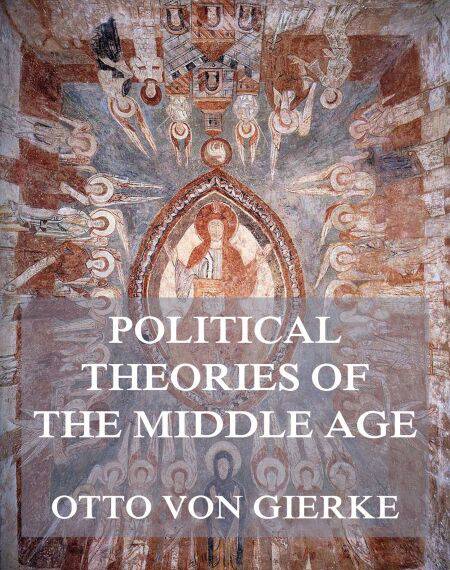
- Retrait en 2 heures
- Assortiment impressionnant
- Paiement sécurisé
- Toujours un magasin près de chez vous
- Retrait gratuit dans votre magasin Club
- 7.000.0000 titres dans notre catalogue
- Payer en toute sécurité
- Toujours un magasin près de chez vous
12,99 €
+ 12 points
Format
Description
This excellent book is a translation of a very small portion of Dr. Gierke's " Deutsches Genossenschaftsrecht, " being the section entitled " Die Publizistischen Lehren des Mittelalters. " Its ten chapters treat of the following questions : The evolution of political theory under the diverse influences of ancient philosophy and law, medieval theology, local custom; Macrocosm and microcosm, i.e., the relation of the whole of society to its parts and vice versa from the medieval viewpoint; unity in Church and State, wherein are discussed the warring positions of parties in both, evolved by the length of the contest between the papacy and the empire; the idea of organization, i.e., of society as an organism; the idea of monarchy, its derivation from God, its consequent relations with the plenitudo potestatis of the papacy; the idea of popular sovereignty, its conflicts and combinations with the ruler's sovereignty, first in the temporal sphere, second, analogous developments of the idea as applied to the government of the Church, somewhat painfully brought out by the conciliar movement; the idea of representation; the idea of personality, i.e., of justice or legal personality applied to the Church and State or to minor corporations; the relation of the state to the law, natural and positive; the beginnings of the modern state, i.e., those elements in medieval doctrine that led up to the modern idea of the state. One half of the book is devoted to notes that elucidate the text of the cited authorities, a long list of which, both ancient and modern, is given. The mere enumeration of the titles of the chapters and the fact that the translation has been undertaken by so eminent a legal historian as Mr. Maitland are a warrant that the work is important, even for those who are not disposed to accept Dr. Gierke's views on faith. English - speaking readers in general must find it interesting, accustomed as they are to look on medieval thought as mere idle speculation of the logicians; as if political theories did not then, as now, agitate men's minds and lay the foundations for much of those political blessings that we now enjoy, or think we do. To a close observer of the development of government in the Catholic Church some portions will be, not merely interesting, but absorbing. They may even be instructive, though at the sacrifice of some preconceptions.
Spécifications
Parties prenantes
- Auteur(s) :
- Traducteur(s):
- Editeur:
Contenu
- Nombre de pages :
- 432
- Langue:
- Anglais
Caractéristiques
- EAN:
- 9783849658052
- Date de parution :
- 09-06-20
- Format:
- Ebook
- Protection digitale:
- Digital watermarking
- Format numérique:
- ePub

Seulement chez Librairie Club
+ 12 points sur votre carte client de Librairie Club
Les avis
Nous publions uniquement les avis qui respectent les conditions requises. Consultez nos conditions pour les avis.





